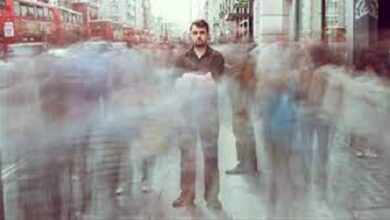What is categorical imperative by Kant and Hypothetical Imperative
Categorical imperative
Ethics and morals are elements that profoundly influence our behavior and on which philosophy and the different sciences that analyze human behavior have tried to reflect and investigate. We limit our behavior in search of the possibility of living with others. Why do we act as we do? In this article we will provide you the information about the categorical imperative.
There are many lines of philosophical thought that have raised questions about these issues and explored the developed concepts, giving them an explanation. One of them is Immanuel Kant’s categorical imperative , which we will talk about in this article.
Kantian morals
Before seeing what the categorical imperative is, it is necessary to make a brief comment on some aspects of Kant’s conception of morality. Immanuel Kant was a theologian deeply concerned with this issue, at a time of great contrasts between ideological currents with different points of view on how to behave and direct behavior.
The author considered morality as a rational element, far from empirical elements and based on a universal ethics. For Kant, the moral act is one that is performed as a duty, as an end in itself: the moral act is one in which one acts based on reason, not on self-love or interest. On the contrary, those that are performed by chance, with interest or as a means of reaching or avoiding other elements, will not be so.
Moral performance is based on goodwill. The act must be seen in its subjective sense to be evaluated as moral or immoral. The moral act seeks the happiness of others, which in turn allows them to be part of humanity themselves, rather than intending to satisfy desires or flee from pain and suffering. To be moral, it is necessary to be free, in the sense that Kant relates to the possibility of transcending one’s own desires and imperatives to transcend.
With regard to concepts such as good and evil, widely linked to morality, Kant believes that acts are good or bad in themselves, but that it depends on the subject who practices them. In fact, morality is not the act itself, but the purpose behind it : it would be bad if he deviates from the moral laws that govern him, subordinating his universal moral motivations to those of personal interest and his own sensibility, while the good is one who follows morality as a universal law in his life and, based on it, fulfills and fulfills his desires based on this morality. A core concept in his moral concept is the idea of categorical imperative.
Kant’s categorical imperative idea
At some point, we’ve either done or pretended to do the right thing, or felt bad about not doing it. Kant’s concept of the categorical imperative is deeply connected with this fact.
The categorical imperative is understood as the act or proposition that is performed due to the fact that it is considered necessary, without there being more reasons to perform than the aforementioned consideration. They would be the constructions made in the form of “must”, without being conditioned by any other considerations, and would be universal and applicable to any moment or situation . The imperative is an end in itself and not a means to a certain result. For example, we can usually say “I must tell the truth”, “Human beings must be supportive”, “I must help another when he is having a bad time” or “We must respect others”.
The categorical imperative need not have an additive sense, but it can also be restrictive. That is, it is not only what we do, but it can also be based on not doing it or stopping doing it. For example, most people do not steal or harm other people, viewing such an action as negative in and of itself.
The categorical imperative is an eminently rational construction , which aims to treat humanity (understood as a quality) as an end and not as a means of achieving something. However, these are imperatives that are difficult to see in real life in this regard, as we are also very subject to our desires and guide our actions based on them.
Categorical Imperative and Hypothetical Imperative
The notion of categorical imperative is based mainly on the fact of doing something in order to do it, the act itself being an end and without conditions. However, although we can find some exponents of the categorical imperative in real life, most of our actions are motivated by different aspects of doing them.
For example, we study to pass an exam or go shopping for food. I go to class to learn, work to fulfill my vocation and / or get a work accidents with sick leave, and unpaid leave for personal matters. In the latter case, the firm may cut the employee’s salary or we exercise to relax or get in good physical shape.
We are talking about what the same author would consider a hypothetical imperative, a conditioned requirement that is used as a means to an end . It is a non-universal proposition, but related to the situation we are facing and which is the most common type of imperative, even when we believe that we are doing it as an end in itself.
Remember that many of the imperatives that govern us can be either categorical or hypothetical, depending on how they are created. I might not steal because it feels wrong, or I might not steal because I’m afraid I’ll be caught and taken to jail. In this sense, it is not the action itself, but the presence or absence of a motive beyond the moral that leads to the action that will generate that we are confronted with one type of imperative or another.
Kantian formulations
Throughout his work, Kant generates different formulations that summarize the moral mandate behind the categorical imperative . Specifically, five top complementary and linked formulas stand out. They are based on the existence of maxims that guide our behavior, being subjective when valid only for the will of the owner or objective if they are valid for one and for the others, having the same value for all, regardless of who executes. The formulations in question are as follows.
- Formula of universal law : “Work only in accordance with a maxim that you can will while it becomes universal law.”
- Formula of the law of nature : “Work as if the maxim of your action became, by your will, a universal law of nature.
- Formula of the end in itself : “Work in such a way that you use humanity, whether in your own person or in the person of any other person, always with the end at the same time and never only as a means”.
- Autonomy formula : “Work as if, through your maxims, you were always a law-giving member of a universal realm of ends.”
In conclusion, these formulas propose that we act based on universal moral values or that we rationally consider that we should all follow, self-imposed by our own reason and considering these values as an end in itself. By following these maxims, we would act on the basis of our categorical imperatives , seeking the happiness of others and acting morally, so that we too would live by doing what is right and gaining gratification for that fact.




